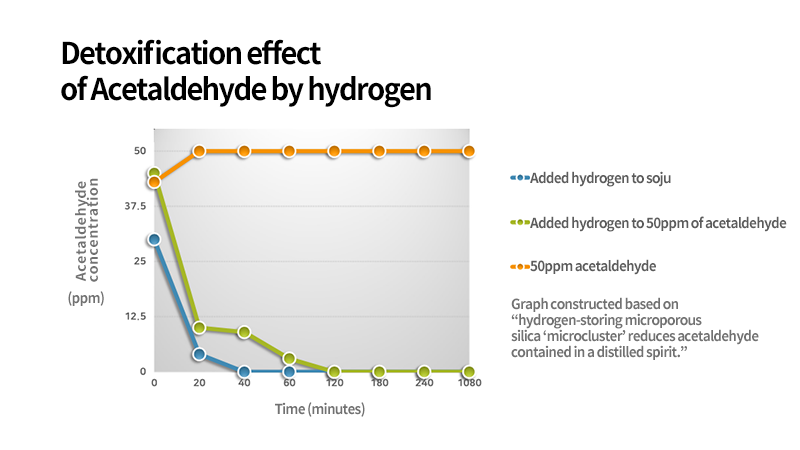Feeling Hungover? Let’s at least detoxify before, during & after drinking alcohol…
Almost everyone has had one of those days where you suffered from hangover and regretted drinking too much alcohol the night before! Overindulgence, such as mixing your drinks, might result in a hangover that even a hangover preparation, or a good bowl of soup or even drinking lots of water can solve! This also causes problems in brain cells due to too much active oxygen species inside the body. A certain substance inside alcohol causes nausea, vomiting, and diarrhea in extreme cases whilst being metabolised. This is what we call a hangover. Approximately 500,000 brain cells die off and are regenerated daily. While approximately 2 million brain cells die as a direct result of alcohol consumption!
Should you be finding it difficult to stop or reduce your alcohol intake, you can sleep with hydrogen inhalation nasal cannula (for more than 5 hours). Once you wake up you will feel as though you haven’t had a single drop of alcohol.
Several experiments were performed on various groups of people with different alcohol levels, on 5 different occasions each with 5-hour trials, and the mitigation of hangover was confirmed. In Japan, yet another study with conclusive results that Hydrogen Inhalation after drinking has positive effects on hangovers. In 2016, research groups in Prefectural University of Hiroshima and Mie University submitted a paper that examined the relationship between Hydrogen Inhalation and curing hangovers.
When acetaldehyde, a cause of hangover, meets hydrogen, its concentration is lowered. When the Ethanol in alcohol is metabolized in the liver, acetaldehyde turns into acetate and is excreted as carbon dioxide and water.
Alcohol (Ethanol) metabolic reaction occurring in the liver

However, if one ingests alcohol beyond one’s metabolic cability, the intermediate, acetaldehyde is accumulated. Acetaldehyde combines protein and DNA, and affects ATP production in the mitochondria, resulting in high toxicity (increase of active oxygen) in liver cells and several other tissues, resulting in many symptoms such as nausea, headache, shivering, dehydration and acute alcoholic gastritis.
One of the research groups added Soju (a type of alcohol) and a trace of hydrogen into a test tube containing 50ppm of acetaldehyde. The Acetaldehyde concentration rapidly decreased, and between 20 minutes to 120 minutes into the experiment the concentration continued to slowly decreased, and after 18 hours into the experiment the concentration reached near-0.
However, in the same experiment where hydrogen was not added, the acetaldehyde concentration showed no change after 18 hours. What causes the hydrogen to detoxify acetaldehyde? The secret is in hydrogen’s reducing power. Acetaldehyde is created when ethanol is metabolized in the body, or during oxidization of alcohol that has been stored long-term. Here when hydrogen molecules are added to acetaldehyde, due to the reducing power of hydrogen, it turns into ethanol and the toxicity is deactivated. Reduction of acetaldehyde due to hydrogen, the ‘hangover cure effect’ of the Hydrogen Inhalation mechanism has been partially discovered and it implies that it may be effective in the prevention of alcoholic hepatitis, liver cancer, and cirrhosis of the liver.

